Branigin Lectures
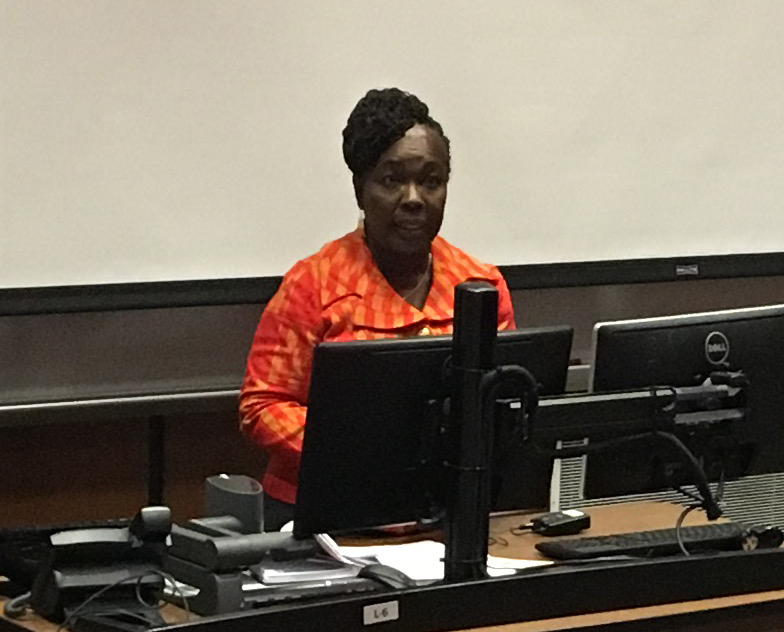
The IAS sponsored two Branigin lectures in 2018, Dr. Takyiwaa Manuh and Nikole Hannah-Jones. Takyiwaa Manuh is the former Director of the Social Development Policy Division of the United Nations Economic Commission for Africa in Ethiopia and was Director of the Institute of African Studies at the University of Ghana from 2002–2009. She has practiced as a lawyer, is active in the women’s movement in Ghana and Africa, and has served on the boards of several international, continental, and national organizations. Her lecture, “Empowerment... a Journey and Not a Destination: Reflections from the Pathways of Women’s RPC,” discussed work done in Ghana around discourses of women’s empowerment, women in local governance, work and intergenerational relations, and the role of popular culture, to highlight the gains, challenges, and unfinished work around women’s empowerment as demonstrated by the recent #MeToo movement in the US.
MacArthur Fellow and Investigative Journalist Nikole Hannah-Jones gave a lecture titled, “Understanding School Equality and Modern Day Segregation.” Her visit was cosponsored by the College Arts and Humanities Institute, IU’s Arts and Humanities Council, the Center for Research on Race and Ethnicity in Society, IAS, the School of Education, the Maurer School of Law, the Media School, the Office of the Vice President for Diversity, Equity, and Multicultural Affairs, and the Indiana Coalition for Public Education–Monroe County. Her lecture focused on the persistence of segregation in the contemporary United States, specifically emphasizing the ways choices people make about where to send their children to school can have a harmful impact on poor children and children of color.
Residential Fellows
The IAS continued its Residential Fellowship program. We were delighted to welcome Carol Greenhouse of Princeton University during the spring semester. We were able to award fellowships with course release to two IUB associate professors so that they could concentrate on projects to bring them closer to promotion to full professor: Judith Brown (English) and Edgar Illas (Spanish and Portuguese). In addition to those awards, we offered residential fellowships to two IUB associate professors who were on leave, Douglas Edmonds (Earth and Atmospheric Science) and Adrian Matejka (English).
Visiting Fellows
The IAS brought three scholars to campus as visiting fellows.
Dr. Greg Mitman (University of Wisconsin–Madison) came to Bloomington as part of People and Places: Conversations about the Meaning of Land, a program hosted by the Department of African American and African Diaspora Studies. Over two days, participants engaged in a series of exchanges to create intellectual dynamism with groups of colleagues, scholars, filmmakers, students, and activists to encourage dialogues to aid understanding of how land speaks and how it lives among people in global marginalized spaces.
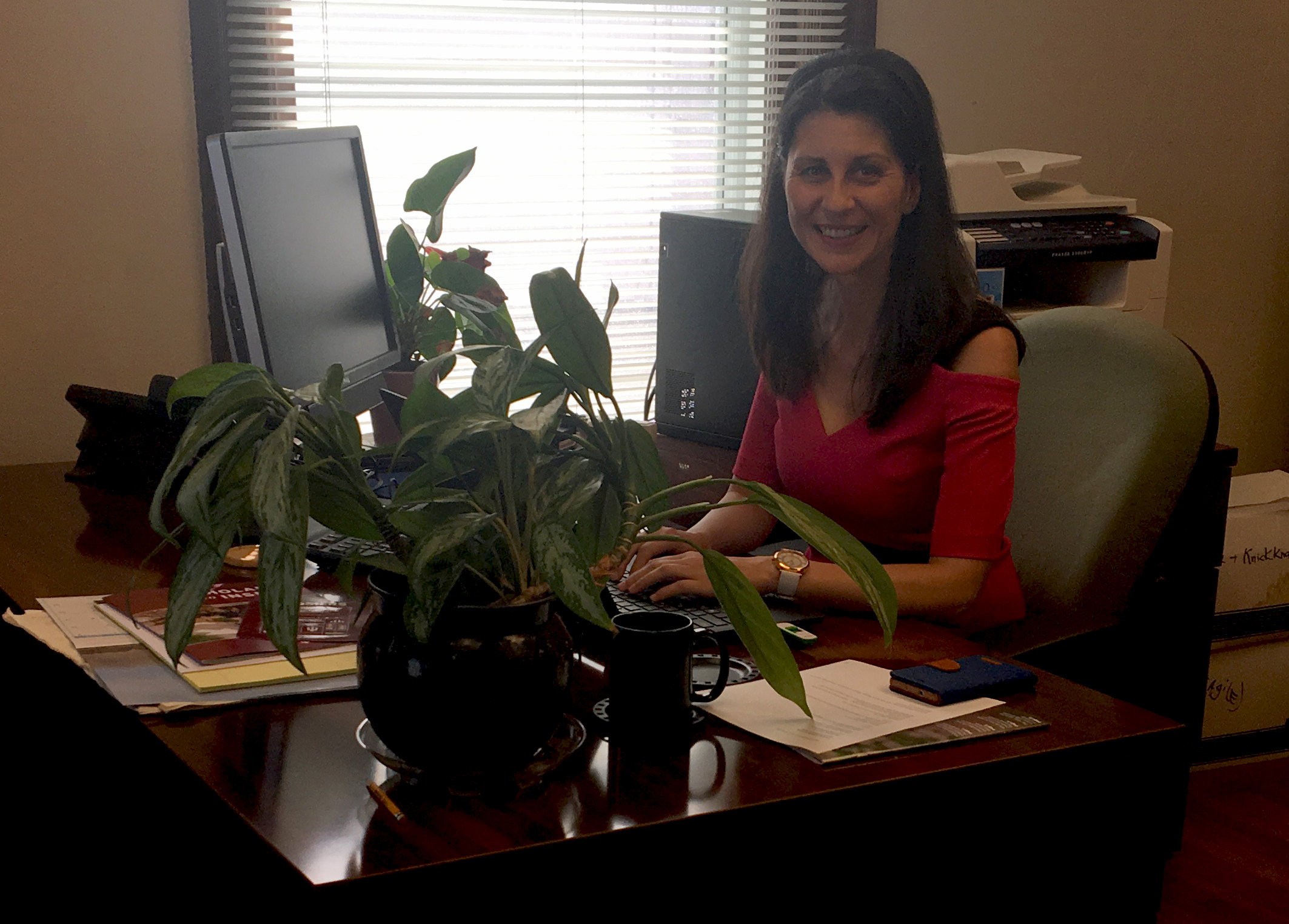
Dr. Mary Stylidi (Greek Ministry of Education, Research, and Religious Affairs) conducted research at the Jerome Hall Law Library to support her work with children in Syrian refugee camps. Stylidi, an external expert for the United Nations High Commissioner for Refugees, argues that Post-Traumatic Stress Disorder is insufficient to describe the experience of children impacted by the war in Syria and proposes instead the term “Human Devastation Syndrome.” Stylidi gave a talk on her research at the Social Science Research Commons and her visit was cosponsored by Center for International Education, Development, and Research and the Center for the Study of Global Change.
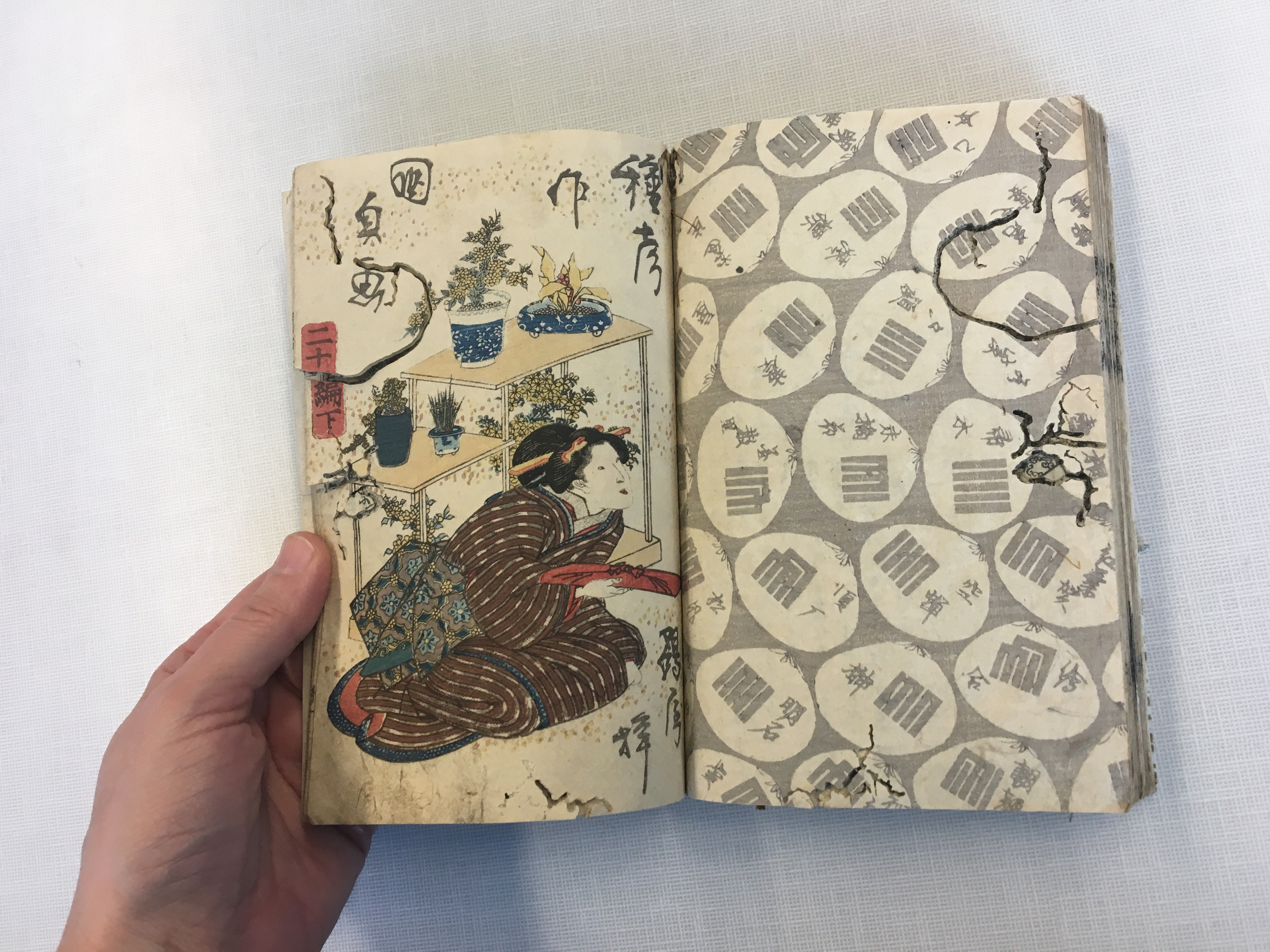
Our final visiting fellow for the year was Dr. Kenji Watanabe (Rikkyo University, Japan). Watanabe’s visit was in support of his collaboration with IAS fellow Sumie Jones for the NEH-funded, three-part Japanese literature anthology project. Watanabe spoke on the culture of washi paper and the rise of popular media in early seventeenth-century Japan.
Summer Repository Research Fellowships
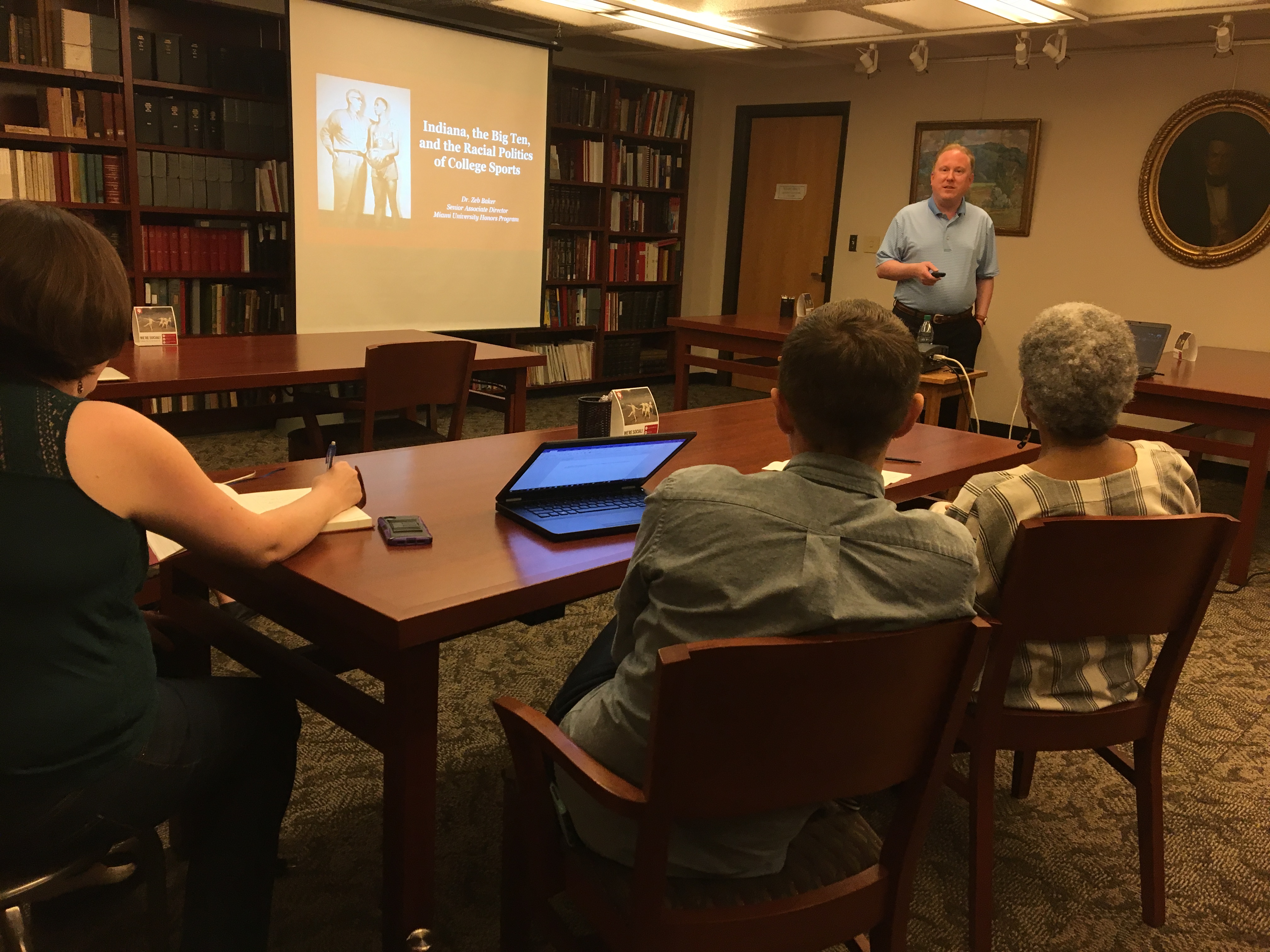
Our Summer Repository Research Fellowships brought four scholars to Bloomington to conduct research in Indiana University’s unique repositories.
Dr. Samuel Zebulon “Zeb” Baker (Miami University) conducted research in the Indiana University Archives on the ways IU administrators and coaches did or did not confront the civil rights challenges that arose in Hoosier athletics from the 1920s through the 1980s. He brought this history into conversation with broader trends seen throughout the Big Ten Conference.
Dr. Philippe Canguilhem (Université de Toulouse Jean-Jaurès), collaborating with IUB Associate Professor Giovanni Zanovello (Musicology), conducted research on the “Guatemalan Music Manuscripts” preserved at the Lilly Library. They mostly contain sacred polyphonic music and chant, intended to be sung during the Office in the churches of these localities. They proposed that the two main scribes were likely indigenous musicians and showed how the manuscripts reflect a mestizo character, through decorative style and in the music itself.
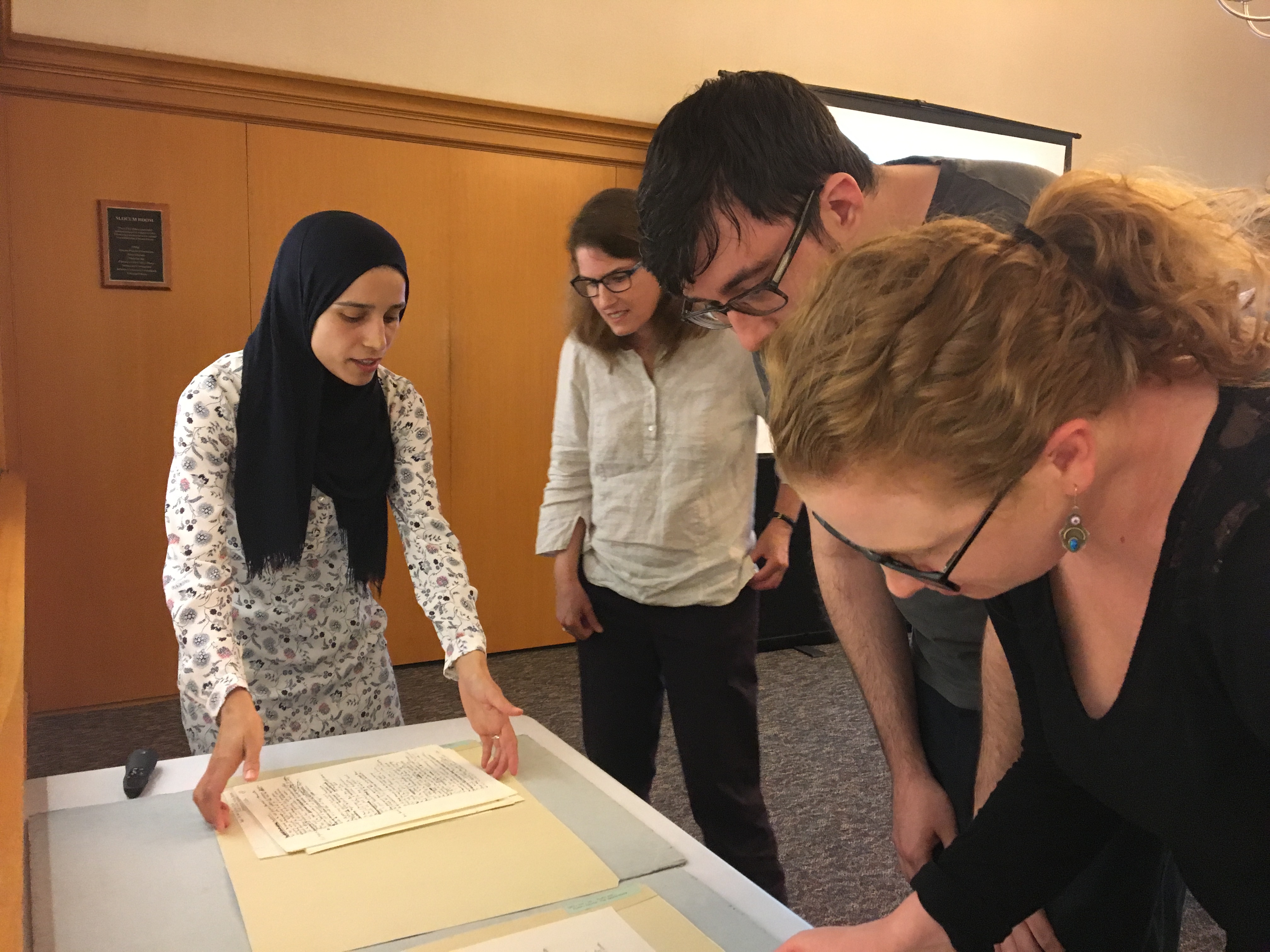
Dr. Ikram Hili (University of Monastir, Tunisia) and her collaborator IUB Professor Christoph Irmscher (English) focused on the collections at the Lilly Library related to the iconic twentieth-century poet Sylvia Plath. They used the autograph drafts for two Plath poems—”The Babysitters” and “The Surgeon at 2 A.M.”—to show how Plath moves from restriction and containment, imposed by the repressive ideologies of domesticity and femininity, to finding her own “perfected” voice. Dr. Hili has worked to introduce archival studies in her classes in Tunisia.
Dr. Elyor Karimov (Hofstra University) and his collaborator, IU Associate Professor Marianne Kamp, examined the ways that some of the members of an family associated with an important Muslim shrine in Tashkent, Uzbekistan adapted to Soviet modes of achieving social status, while others were arrested and executed. They drew on photos, government land documents, a genealogy, interviews, and research in the Sinor Research Institute for Inner Asian Studies collection. They also explored the ways that Soviet terror silenced bearers of a family legacy, and the ways collective memory within an extended family became a resource for reconstructing what happened to children of the Eshon.
Wells Lecture
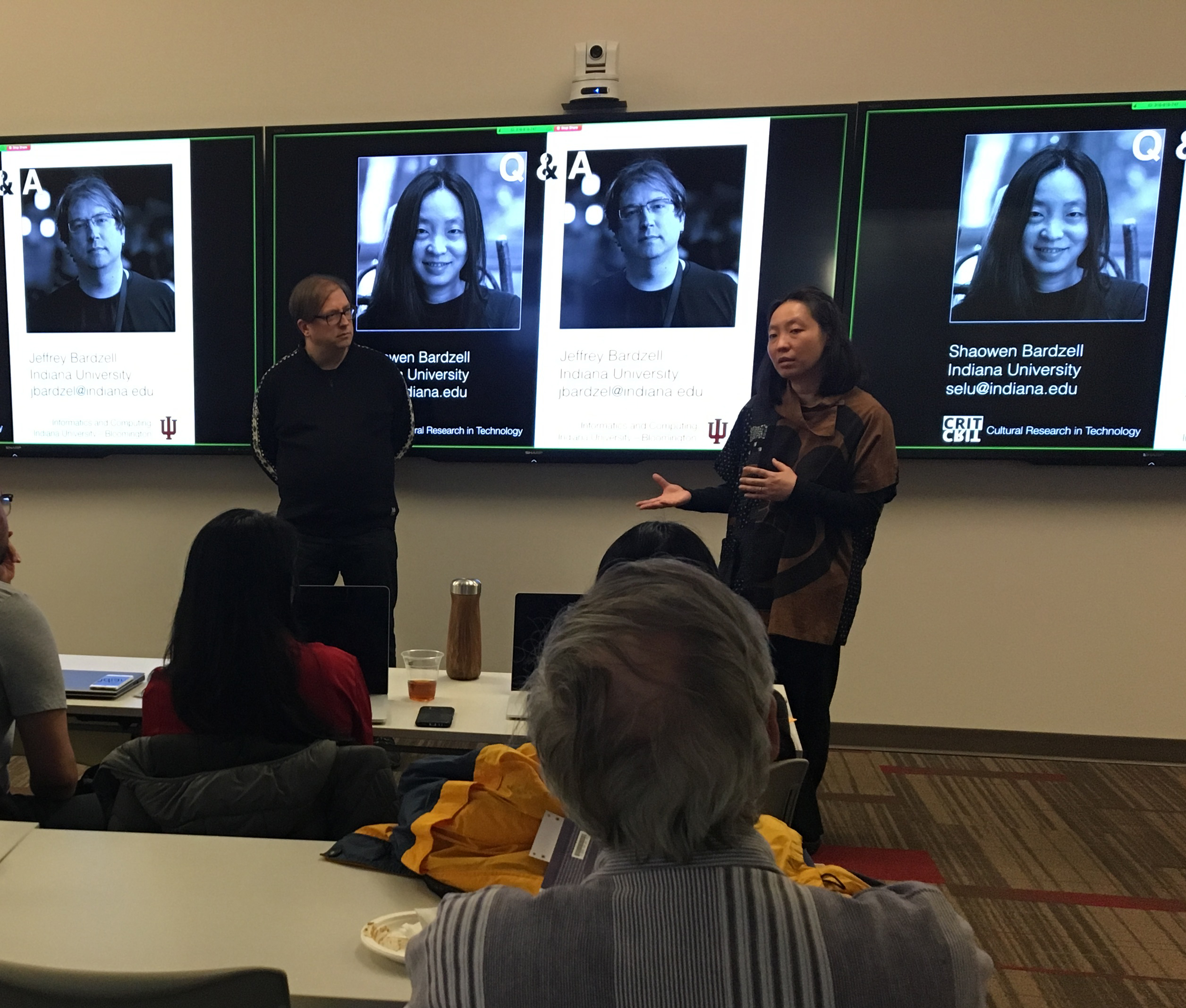
We hosted a Wells Distinguished lecture titled “Humanistic Contributions to IT Research Fields” given by two IUB faculty, Dr. Jeffrey Bardzell (Professor of Informatics and Director of the Human-Computer Interaction/Design Program) and Dr. Shaowen Bardzell (Associate Professor of Informatics). Reflecting on nearly two decades of experience as researchers in human-computer interaction (HCI) and design, the Bardzells discussed how humanistic contributions have shaped computer science and engineering. They surveyed humanistic contributions to user experience (UX), critical and speculative design, emancipatory approaches to computing, the “design thinking” movement, and critical-humanistic interventions into cogsci and engineering research paradigms. They argued that all these contributions are informed by humanistic epistemologies and methodological rigor, and moreover that they reflect humanistic contributions to society as they are traditionally understood. Yet these contributions are not always as visible as they might be, and cooperation between the humanities and human-computer interaction research is often hindered by disciplinary language games. In an era of disciplinary realignments, the Bardzells stressed the importance of asserting our shared humanistic approaches and values, while doing so in an open-ended and epistemologically pluralistic way—one that invites “walking alongside,” rather than competing with design, engineering, information and social scientific disciplines.
Associate Professor Promotion Programs
In service of our directive to help associate faculty as they move toward promotion to full professor, we continued our Promotion Cohorts. Nine associate faculty participated in our promotion cohorts in 2018. Cohort members meet together throughout the year to give each other feedback on promotion dossier materials and receive feedback from a faculty member who has served on promotion committees in the past.
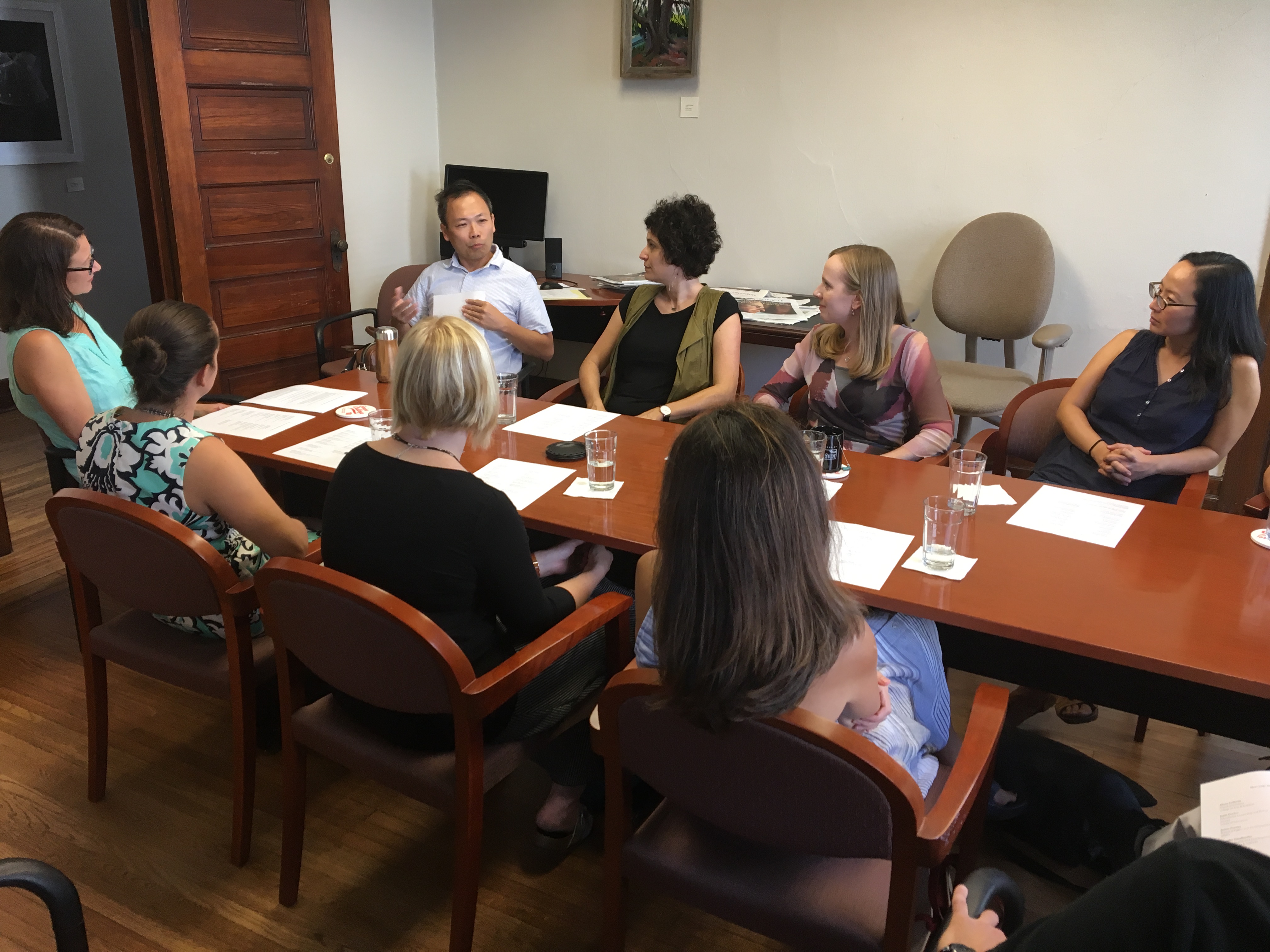
The IAS also began Recently Tenured Working Groups for faculty members who have received tenure in the past three years to set them on a path to promotion through career development workshops, small group discussions focusing on faculty projects, and targeted research support. This program is conducted jointly with the Vice Provost for Faculty and Academic Affairs (VPFAA). The working groups meet monthly with a facilitator and prepare a multi-year work plan that they submit by the end of the spring semester. Twelve associate professors participated in the first year of this program.

